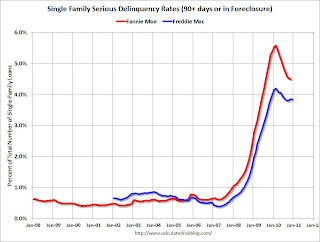Big Banks Face Fines on Role of Servicers
U.S. Regulators have reviewed mortgage-servicing practices in the nation and found serious problems with internal controls and staffing levels at the companies. These findings are likely to result in formal enforcement action against more than a dozen major financial institutions.
The penalties against Bank of America Corp., J.P. Morgan Chase & Co., Wells Fargo & Co. and 11 other home-loan servicers being investigated since last fall could include fines and changes in how the companies operate. The regulators found numerous breakdowns in procedures for payment collection, loan modifications and foreclosures.
While regulators haven't agreed on exact details of the punishment, some banks could be notified within days of the enforcement action being taken against them.
In testimony prepared for a Senate Banking Committee hearing Thursday, John Walsh, acting head of the Office of the Comptroller of the Currency, which oversees most of the nation's biggest banks, said the probe found "critical deficiencies and shortcomings" in document procedures, oversight of outside law firms and other areas.
A review of 2,800 foreclosures also uncovered a "small number" of wrongful sales that shouldn't have occurred, since the borrowers were on military deployment, filed for bankruptcy-court protection shortly before the foreclosure or had been approved for a trial loan modification, Mr. Walsh said.
"By emphasizing timeliness and cost efficiency over quality and accuracy, examined institutions fostered an operational environment that is not consistent with conducting foreclosure processes in a safe and sound manner," Mr. Walsh said in his remarks. The problems violated state laws and had "an adverse affect on the functioning of mortgage markets and the U.S. economy as a whole."
Loan-servicing firms are likely to cite the outcome as proof of their insistence since the robo-signing mess erupted last fall that paperwork problems haven't caused an epidemic of mistaken foreclosures. Still, the penalties and operational changes being imposed by regulators will be embarrassing and expensive. Regulators want to "get closure on this pretty quickly," said one person familiar with the discussions.
State attorneys general say their investigation of foreclosure practices is entering a critical phase. Iowa Attorney General Tom Miller, who is heading the multistate investigation, said in a statement that the states "are making every effort to work with these federal agencies in hopes of a coordinated settlement." But Mr. Miller added that many of the bank practices under review are violations of state law. Regardless of any federal action, the states "intend to fully pursue all state claims and remedies," he said.
The wide swath of U.S. agencies that has been scrutinizing mortgage servicers or involved in meetings with industry officials also includes the Justice Department, Department of Housing and Urban Development, Federal Housing Finance Agency and newly formed Bureau of Consumer Financial Protection.
Banking regulators' specific enforcement actions wouldn't preclude, and could be one part of, the broader settlement this group may pursue against banks.
Last week, Federal Reserve Governor Sarah Bloom Raskin said preliminary results of the review "indicate that widespread weaknesses exist in the servicing industry." The problems "pose significant risk to mortgage servicing and foreclosure processes, impair the functioning of mortgage markets, and diminish overall accountability to homeowners," she added.
Bank of America, J.P. Morgan and Wells Fargo declined to comment.
In addition to fines, federal regulators have been considering new rules aimed at correcting what U.S. officials have concluded are deficiencies in how borrowers are treated during the loan-modification process. The requirements could include a code of conduct for home-loan servicers, a "single point of contact" for troubled borrowers and procedures for how banks handle loan modifications and foreclosures simultaneously.
People involved in the talks cautioned that no agreement has been reached, partly because of differences between various agencies about the size of penalties and the scope of procedural changes that are needed.
OCC officials have proposed relatively modest fines, according to people familiar with the situation. Officials from the Bureau of Consumer Financial Protection and FDIC have pushed for larger penalties that could include compensation for borrowers or forcing mortgage servicers to consider reducing loan balances, these people said.
U.S. officials are trying to make sure that the forthcoming enforcement actions by federal banking regulators don't give servicers any wiggle room to resist additional punishment by U.S. or state regulators by arguing that the servicers already satisfied their primary banking regulator's demands.
The OCC conducted a separate investigation of the Mortgage Electronic Registration Systems, an electronic-lien registry set up by the mortgage industry to handle documentation on loans bundled into pools and sold as securities. That probe is on a separate track, and it isn't clear when it will be finished, people familiar with the situation said.
MERS's legal standing has faced criticism from some judges, who raised questions about the company's practice of certifying bank executives to handle foreclosures by naming them "vice presidents" of MERS.
On Wednesday, MERS issued a series of corporate-governance changes that will overhaul those processes. For example, servicers that use MERS will be required to foreclose in their own names, not in that of MERS.
